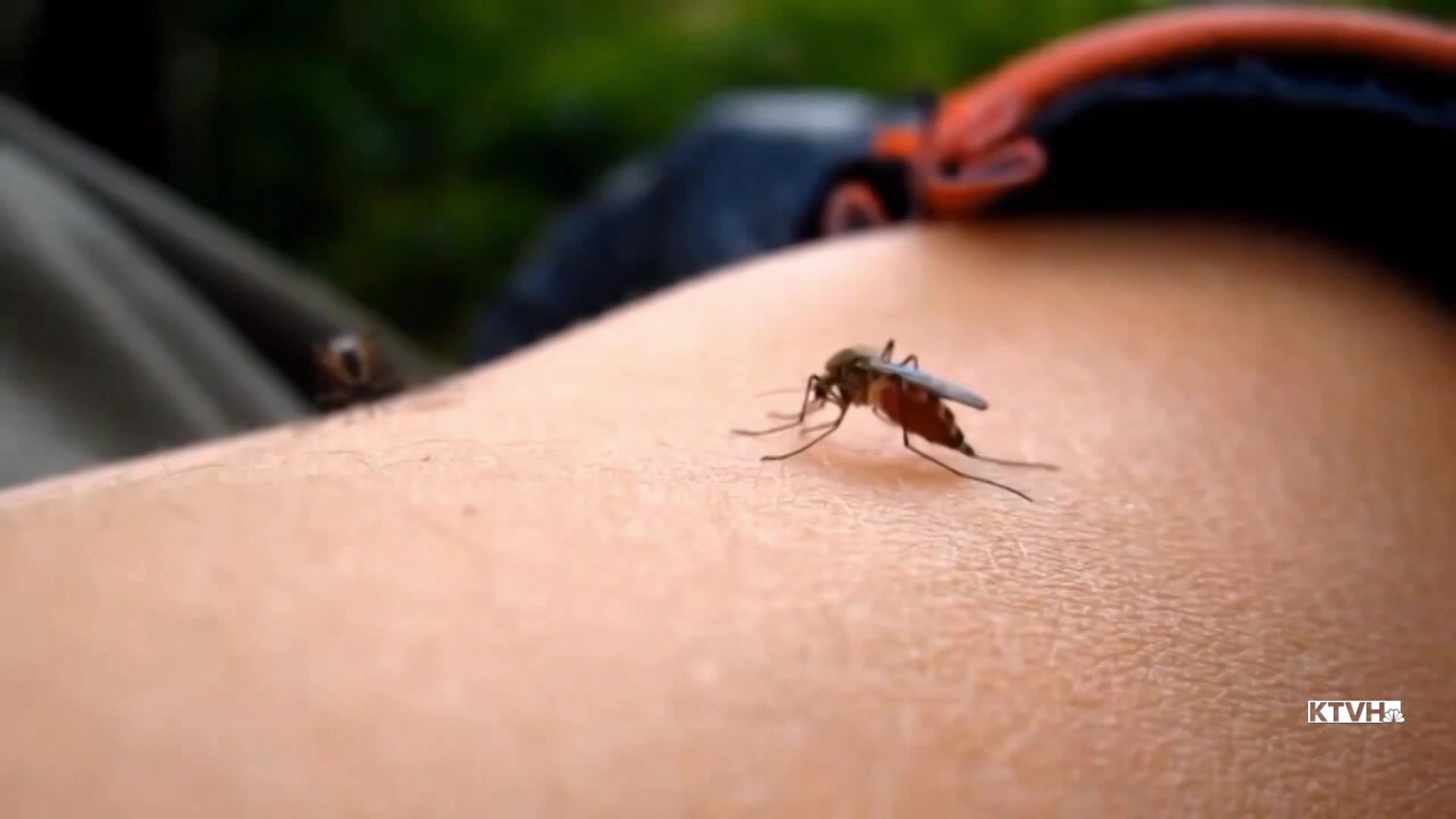HELENA — West Nile virus can cause illness in humans and horses through mosquito bites, but there are actions we can take to swat away the dangers.
“You live in Montana, you are gonna get bit,” said Helena resident Mark Campanella.
He knows the biting pests are around, but is not concerned about West Nile virus.
Campanella says, "All I know is you could get sick."
(Watch to learn ways to protect your family and animals from contracting West Nile virus.)
Jacquelyne Santos also lives in Helena and feels similarly, and says, “I have heard of it throughout the years, but it does fall under the out of sight and out of mind since I have not seen it much.”
The Montana Department of Public Health and Human Services is urging Montanans to take increased precautions against mosquito bites this summer.
Four mosquito pools have tested positive for the virus, including three in Lewis and Clark County and one in Cascade County.
Devon Cozart, the vectorborne disease epidemiologist with DPHHS, says, “So once we have our first detections in mosquitoes, it is great to just assume you are at risk around mosquitoes across the state.”
Although many may feel they won’t contract the virus, anyone bitten by a mosquito in confirmed detection areas is at risk.
“About one in five people will show symptoms, and that one to five is usually what we call mild symptoms," said Cozart.
This could look like the flu or nausea. Approximately 1 in 150 people develop what is known as neuroinvasive WNV. Neuroinvasive WNV is a very serious illness, sometimes resulting in long-term disability such as paralysis, blindness, encephalitis, meningitis, and can lead to death.
There are actions you can take to prevent mosquito bites, explained through the four "D"s.
- DRESS: Wear shoes, socks, long pants, and a long-sleeved shirt when outdoors for long periods of time or when mosquitoes are most active. Clothing should be light colored and made of tightly woven materials to keep mosquitoes away from the skin.
- DRAIN: Reduce the amount of standing water in or near your property by draining and/or removing it. Mosquitoes may lay eggs in areas with standing water. Necessary standing water should be changed (e.g. birdbath), moved (e.g. adding a fountain to a pond), or covered (e.g. putting a mesh screen over a water barrel).
- DEET (DEFEND): For additional protection from mosquitoes, use an insect repellent containing DEET (N,N-diethyl-m-toluamide) or picaridin (KBR 3023). Other insect repellents, such as oil of lemon eucalyptus and IR3535 are also registered by the EPA but may be less effective than products containing DEET. It is important to follow the product guidelines when using insect repellent.
- DAWN/DUSK: Whenever possible, avoid spending time outside at dawn and dusk. This is when the mosquitoes that spread WNV are most likely to bite. If you keep windows open in your home, make sure that you are using well-fitting screens without holes or tears, to prevent mosquitoes from coming inside.
Cozart says, “Drain, this is a really big one because it's something we can actively do to protect ourselves, our family, and our livestock.”
In addition to draining standing water, applying insect repellent, avoiding the outdoors at dawn and dusk, and dressing in long sleeves and pants when recreating are helpful actions.
For more information on West Nile virus and its surveillance, contact your local health department or visit the DPHHS website.




